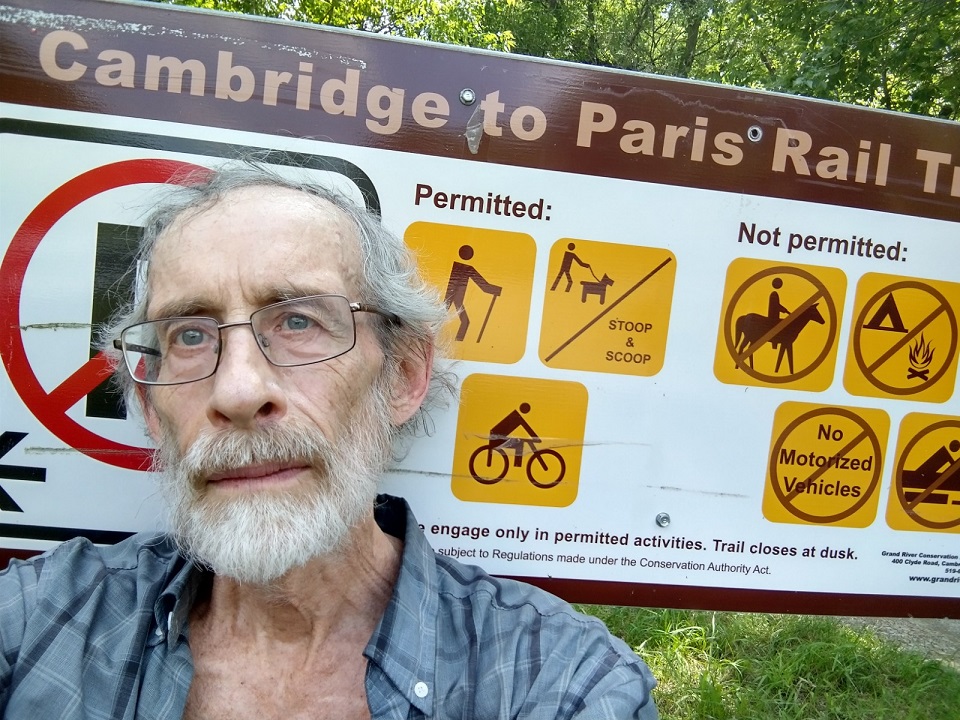
Oh, we did it, via Zoom, from Newport, Oregon, to Toronto, Ontario, Canada. We had to use the free version of Zoom (is anything free with digital gulag tools, since Zoom has our data, our recording, even the stuff we said off the recording mode?) which is 40 minutes max, and then we did another recording, so, that’s 30-30, Parts One and Parts Two. It’s in an MP4 format, which I will convert to an MP3 for the KYAQ FM radio show that will air sometime in October.
Oh, he was daring to come onto my show since he has been so much more dignified in older shows.
My idea of a 30-30 interview? Make that .30-30 caliber.

Go here for a three-part book review, which gets under the chigger-infested skin of a world gone Israel Mad:
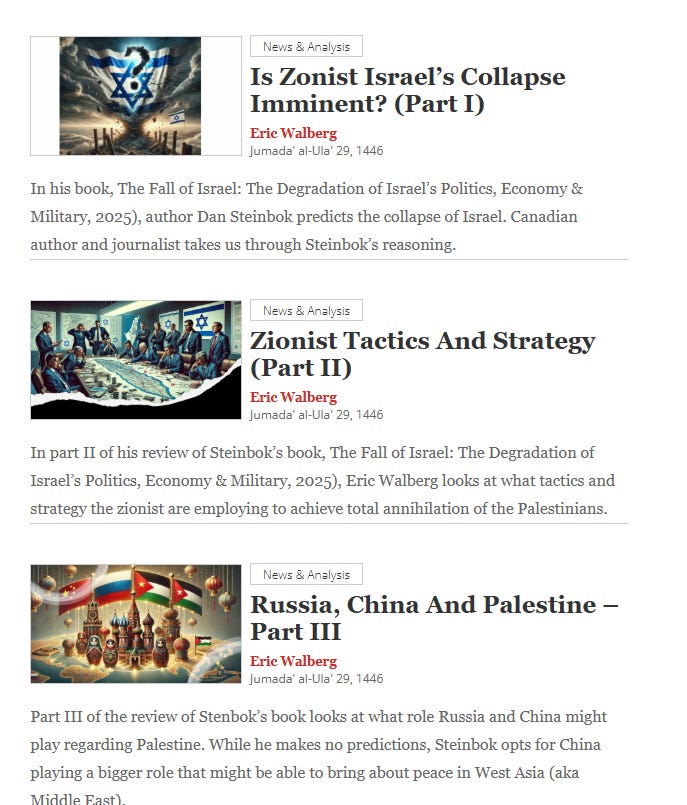
(In this three-part series, Canadian author and journalist Eric Walberg reviews Dan Steinbock’s book, The Fall of Israel: The Degradation of Israel’s Politics, Economy & Military, 2025. All three parts are published in this issue to provide continuity.)
Baby steps?
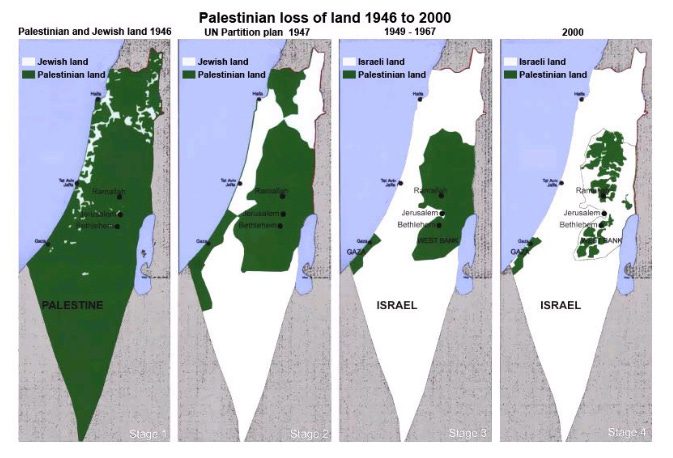
And we talked about this giant step forward FOR all of Jewish-Kind:
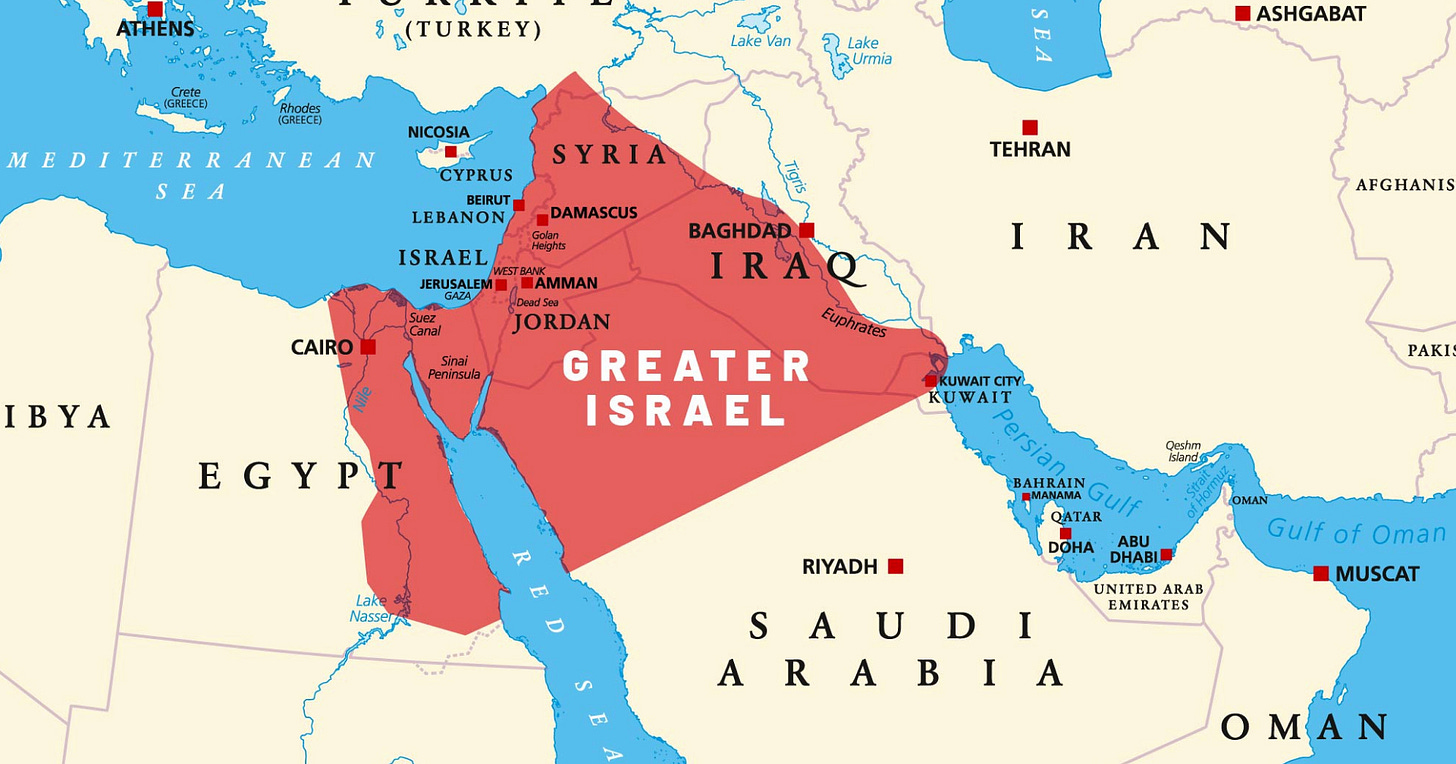
Oh, Samson and Hannibal and David’s Sling and Pegasus and Esther Project, and alas, we are seeing a few stories about the 9/11 of Oct. 7:
Reporting on the testimony, Israel’s Channel 7 reported that “At 5:20 a.m.” on October 7th, Shitrit said, “We were playing on the phone and suddenly a strange message came up from my deputy commander, .. and what he says on the radio is something like this: ‘I don’t know why, but an order was given that there would be no patrols in the (Gaza) fence until 9 a.m”.
He went on to say, “And sure enough, an hour later, at 6:30, suddenly sirens”.
The outlet reported that he said, “Every morning the platoon raises alert, and in his estimation, there are no mornings in which there are no patrols on the (Gaza) fence,” quoting him saying, “because you are in an operational battalion and that is part of the matter”.


Eric and I discussed his Dissident Voice pieces, and this one, surely would put him in the dock if he was living in Germany or UK: “Israeli Jews’ Love of Genocide — Review of Peter Beinhart’s Being Jewish after the Destruction of Gaza: A Reckoning” by Eric Walberg / May 17th, 2025.

I think just saying the word “Jew” will get you in trouble, and saying that the Jews of Israel Love Genocide is certainly a death sentence. For Muslims. Walberg is Muslim.
Reality: Dr. Sabreena Ghaffar-Siddiqui,
“I was forced to resign from my role as Senior EDI Advisor (Jan 2024) and then let go from my position as professor (Aug 2024) at Sheridan College for my advocacy on the genocide of Palestinians.
While waiting for the arbitration date, I was advised by the union lawyer to “cool it” on my advocacy if I expect any positive outcome.
I made it clear from the start that my only reason to fight this unfair dismissal was to get a formal apology and public acknowledgement of the college’s bias. I was told an apology would be expecting too much, but compensation a more likely reality.
Over a year later, I’m still waiting for the date of arbitration.
And in this time, the department I worked in has dissolved, the people involved in my case have moved on to better pastures. even the president has left. This institution that I’m waiting to receive accountability from has been totally refaced.
AND the genocide has continued with even greater barbarity.
I was expected to hold my tongue, suppress my conscience, lie in wait, all whilst the institution and people that harmed me not only continued to harm others, but be rewarded for it.
The systems that oppress us are designed to silence us and the systems in place to protect us from them are designed to tire us.
Clearly my advocacy never stopped.
Because my moral conscience was a price I was not willing to pay for my career.
Look, accountability is important, we should take every step to hold these institutions to task, but we must also understand that a fair and just outcome – in my case, being vindicated, compensated or reinstated is rare.
The false hope we are asked to place into the systems that we know so well to be historically discriminating, all at the expense of our silence, is nothing but a tantalizing and delusive dangling carrot.
Don’t fall for it.
Maintain your integrity.
Never stop speaking the truth.”


[Dr. Sabreena Ghaffar-Siddiqui is a globally recognized multiple award-winning public-speaker, media pundit, researcher, and a passionate social justice advocate. As well as being a professor of sociology, criminology, and criminal-psychology, she is currently directing one of Canada’s largest government-funded Equity Diversity and Inclusion (EDI) initiatives at Colleges and Institutes Canada’s National EDI Knowledge Mobilization Centre hosted at Sheridan College. She is also leading a national study with Institute for Social Policy and Understanding in Washington, DC, that both quantifies and analyses in-depth the influence and impact of a right-wing extremist political group on U.S. institutions and American attitudes.
As a postcolonial scholar, her intersectional research concentrates on the impacts of colonialism and imperialism on the lives of diasporic peoples in the West. Focusing in the areas of migration, race/ethnicity and ethno-religio identity, Dr. Ghaffar-Siddiqui’s doctoral research explored the ways in which Muslim communities in the West navigate their social worlds in a post 9/11 climate. Her previous research includes a qualitative analysis of South Asian people’s experiences of discrimination and healthcare seeking behaviours in traditionally colonial healthcare structures and settings in Ontario.]
Eric and I did not get into Sabreena’s dismissal, which is basically hateful and Jewish-Inspired Klanadian version of 1984 a la 2025.
We didn’t get into this blasphemy:
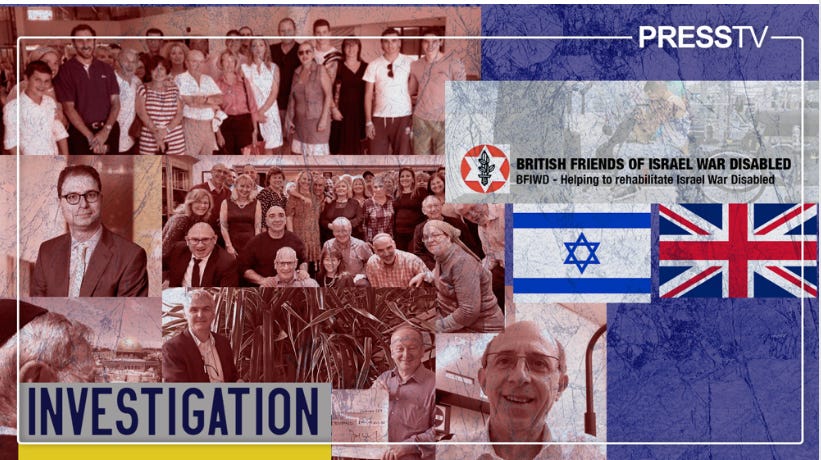
By David Miller
Zionist war criminals are being secretly hosted in Britain, with thousands arriving over the past several years, according to documents in the possession of Press TV.
They are hosted by Zionist families in the UK, taken on tours to popular tourist sites, and welcomed into private homes — as reported on the now-deleted website of the “charity” involved that goes by the name ‘British Friends of Israel War Disabled’ (BFIWD):
We did all the usual things, had an orientation tour of London, went to the theatre, visited Waddesdon Manor, went shopping, had a tour of the Houses of Parliament, visited the RAF museum and went bowling.
Our host families fed and made our guests a part of their families and we all danced the night away at the final thank you and farewell party. No one who met our guests was not moved by their experiences and the atmosphere at the final party was electric. Each and every one of them touched our hearts.
Fawning over genocidaires suggests that the risks to the UK extend beyond the visitors themselves to those who host them. There is something particularly disturbing about Zionists in the UK providing what is, in effect, material support for ongoing genocide in the Gaza Strip.
*****
Eric played good cop to my bad cop, which is funny coming from Walberg:
… all of us pin our hopes on world mass opinion. None of the world leaders, apart from the Axis of Resistance can be counted on. Arab leaders loathe the pesky Palestinians almost as much as US-Israel does. It is only the revolting masses that stand between them and the Palestinians.

He ends the third part of his Crescent International piece/book analysis this way:
The first real sign that South African apartheid would be dismantled was when (Jewish) MP Harry Schwarz met with ANC’s Mangosuthu Buthelezi to sign the Mahlabatini Declaration of Faith in 1974, enshrined the principles of peaceful transition of power and equality for all, the first such agreement by black and white political leaders in South Africa.
But it took another two decades of struggle until de Klerk opened bilateral discussions with Nelson Mandela in 1993 for a transition of policies and government.
It seems we have reached that first stage today. Ehud Olmert, who served as Israel’s prime minister from 2006 to 2009, and Nasser al-Kidwa, the Palestinian foreign minister from 2005 to 2006, met Pope Francis on October 17, 2024, to promote a peace plan that would see a Palestinian state existing alongside the state of Israel ‘on the basis of 1967 borders’ with a few territorial adjustments.
Their plan calls for the city of Jerusalem to be the capital of both Israel and Palestine, with the Old City being ‘administered by a trusteeship of five states of which Israel and Palestine are part.’

Ahh, the reality is that Israel is a necropolitical and necroschizophrenic society — Achille Mbembe: Necropolitics
The economic and political management of human populations through their exposure to death has become a global phenomenon. Wars, genocides, refugee “crisis”, ecocide and contemporary processes of pauperization and precarization reveal how increasing masses of individuals are now governed through their direct and indirect exposure to death. In order to unpack those processes, Achille Mbembe came up with the notion of necropolitics, first in 2003 with an essay bearing the same name, and then in 2016, with the book Politiques de l’inimitié, translated and published in English in 2019, as Necropolitics.1 With this latter notion, Mbembe explores and radicalizes Foucault’s concept of biopolitics.
In the last lecture of “Society must be Defended” and in the last chapter of The History of Sexuality (Vol.1), Foucault noticed how biopolitics, that is, the positive power over life can become a deadly form of power. It is not only a “calculated management of life” but also a “power to expose a whole population to death”.2 Drawing on the dramatic experiences of the Nazi and Stalinist regimes and on the global nuclear threat, Foucault highlighted how human masses are eliminated in the name of the protection and survival of a nation, a people and/or a class. Besides, he noted how racism has become the political tool that enables the biological division of the human species and the justification of the extermination of those considered inferior. Foucault insisted modern racism has developed with the “colonizing genocide”, so that the right to take life could be justified.3 Giorgio Agamben and Roberto Esposito have explored these foucauldian observations with the notions of “homo saccer” and “thanatopolitics”, insisting respectively on the sovereign right to kill with impunity and the biological/pathological justifications of humans’ exterminations.4 Mbembe’s necropolitics offers a novel approach as it draws both on Foucault and a decolonial approach (often inspired in Frantz Fanon) and conceives of necropolitics as the political making of spaces and subjectivities in an in-between of life and death. The colony in general and the slavery plantation in particular have given birth to those necropolitical practices — fostered by white supremacy — that still continue today.
The subjugation of life to the power of death
The third and “key characteristic” of necropolitics is “to produce death in a large scale”. This aspect is developed, in particular, in a subpart untitled “Relation Without Desire” from the First Chapter “Exit From Democracy” of Necropolitics (2019). It is possible to explain this characteristic, highlighting seven traits that, according to my understanding, seem to underpin Mbembe’s account on the issue.
1) State terror: The State persecutes, imprisons and eliminates certain populations so that political and social contestations can be neutralized. Those repressive tactics are operated not only by totalitarian regimes but also by contemporary liberal and illiberal countries.
2) The shared use of violence: In many cases, the State does not have and willingly shares the monopoly of violence with other private actors (i.e., militias, paramilitary), increasing the circulation and use of weapons in society. The latter is therefore divided between “those who are protected (because armed) from those who are not”.7
3) The “link of enmity”: According to Mbembe, in a society where the possession and nonpossessions of weapons define one’s social value, all social bonds are destroyed. The link of enmity normalizes therefore the “idea that power can be acquired and exercised only at the price of another’s life”.8
4) War: “Coercion itself has become a market commodity”.9 Nowadays, war and terror have become modes of production on their own, and as such need to generate new military markets.10
5) The predation of natural resources: In order to exploit valuable natural resources, populations are displaced and eliminated (i.e. indigenous people in the Amazon rain forest) though the active and hidden collaboration of the State, public forces, international corporations and criminal organizations.
6) Different modes of killing: The exposure to death is multiple: tortures, mutilations, mass killings, high-tech elimination through “drone strikes” represent various modalities of necropolitical devices.
7) Different moral justifications: According to Mbembe, atrocities are justified for various reasons such as the eradication of corruption, different types of “therapeutic liturgy”, “the desire for sacrifice”, “messianic eschatologies”, and even “modern discourses of utilitarianism, materialism, and consumerism”.11
Necropolitics implies therefore a closed entrenchment of political, economic and military devices, oriented towards the eliminations of human populations. But along with this aspect, necropolitics is also deployed through “small doses” of death that structure the everyday life of individuals.12
Less human than human
in the power to manufacture an entire crowd of people who specifically live at the edge of life, or even on its outer edge — people for whom living means continually standing up to death …. This life is a superfluous one, therefore, whose price is so meager that it has no equivalence, whether market or — even less — human …. Nobody even bears the slightest feelings of responsibility or justice towards this sort of life or, rather, death. Necropolitical power proceeds by a sort of inversion between life and death, as if life was merely death’s medium.16
Under everyday necropolitics, a mass of populations live under extreme precarious conditions and as such, can be exploited and eliminated “naturally”. Mbembe singles out racism as the main criteria that allow necropolitics to be performed and expand in society. Along with an “hydraulic racism” that defines institutional racism (State, law, administration), Mbembe pays attention to a so-called “nanoracism” that is deployed in everyday social relations, and is designed to stigmatize, to injure and to humiliate “those not considered to be one of us”.17 Taking into account current political, social and symbolic forms of violence that are deployed worldwide, Mbembe’s notion of necropolitics represents a relevant heuristic category for contemporary critical thought.
Antonio Pele is an Associate Professor at the Law School of the Pontifical Catholic University of Rio de Janeiro.
*****
Next time I have Eric on we will discuss his books:
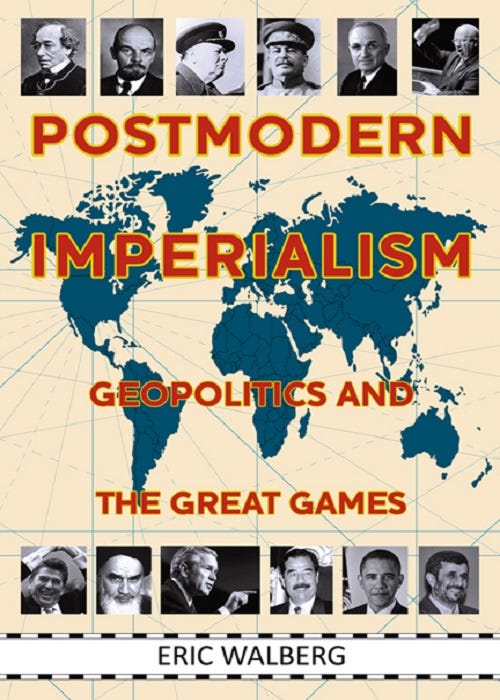
He’s got gravitus and gastritis, which he attributes to the on-going genocide and horrific images of children and civilians being gunned down while lining up for so-called food aid.
Canadian Eric Walberg is known worldwide as a journalist specializing in the Middle East, Central Asia and Russia. A graduate of University of Toronto and Cambridge in economics, he has been writing on East-West relations since the 1980s. He has lived in both the Soviet Union and Russia, and then Uzbekistan, as a UN adviser, writer, translator and lecturer. Presently a writer for the foremost Cairo newspaper, Al Ahram, he is also a regular contributor to Counterpunch, Dissident Voice, Global Research, Al-Jazeera and Turkish Weekly, and is a commentator on Voice of the Cape radio. His articles appear in Russian, German, Spanish and Arabic and are accessible at his website ericwalberg.com. Walberg was a moderator and speaker at the Leaders for Change Summit in Istanbul in 2011. His book, Postmodern Imperialism, is published in Chinese, Turkish and Russian.

Check out Walberg here, over at Dissident Voice.

This content originally appeared on Dissident Voice and was authored by Paul Haeder.